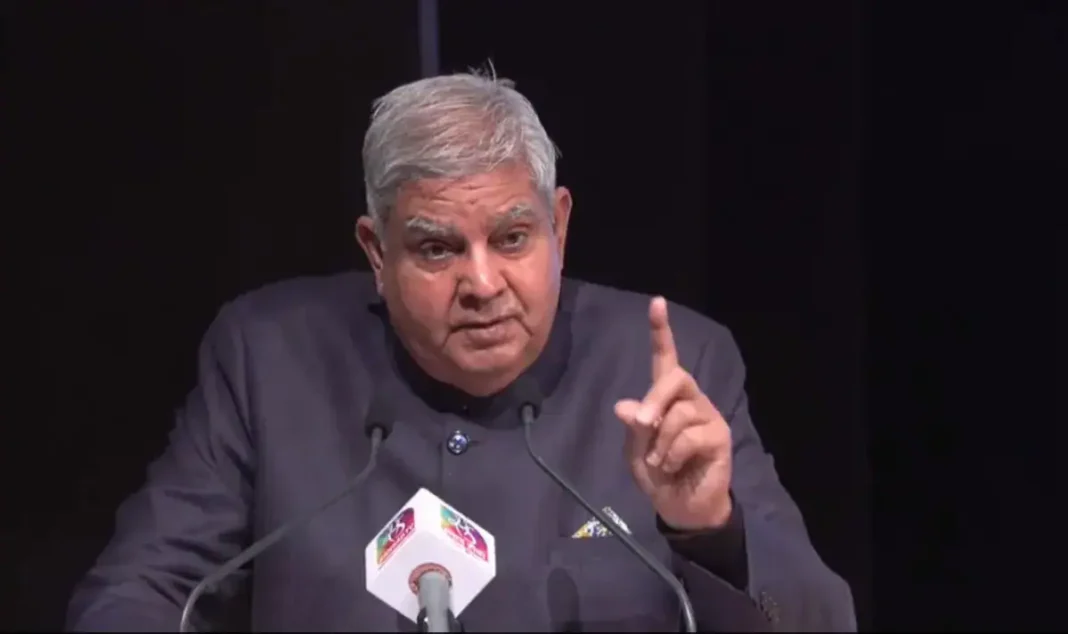New Delhi: Vice President Jagdeep Dhankhar attended the inaugural session of the 6th International Chamber of Commerce India Arbitration Day on Saturday, emphasizing the need for significant changes in the country’s arbitral system.
Mr Dhankhar expressed concerns over the dominance of retired judges in the system, calling for introspection and legislative reforms to encourage diversity and inclusion.
Mr Dhankar said, “We are having explosive economic growth. India’s economy is rising as never before. World entities have held out us as a favourite destination of opportunity and investment. The kind of progress we have recorded and the rate at which we are going has amazed the world.”
Highlighting the explosive economic growth in India, Mr Dhankhar noted that the nation’s economy is rising at an unprecedented pace.
Mr Dhankar said,” Nowhere on the planet, in no other country, in no other system, there is such tight fist grip on the arbitral system by retired judges. In our country, this is at large”.
However, he pointed out that the arbitral system is tightly controlled by retired judges, limiting opportunities for other qualified individuals.
The Vice President applauded Chief Justice of India D Y Chandrachud’s remarks on the lack of diversity in appointing arbitrators.
Justice Chandrachud’s statement, as quoted by Mr Dhankhar, highlighted the dominance of retired judges in the field, suggesting an “old boys club mentality” within the arbitration space.
Mr Dhankhar praised the Chief Justice for his bold stance, stating that such remarks would contribute to strengthening the arbitral process in India.
“He goes on to add, and I salute him for this, he said while other qualified candidates are overlooked, he implied this reflects an old boys club mentality within the arbitration space,” said Mr Dhankar.
Mr Dhankhar stressed the importance of India’s rich human resources, urging a departure from the existing system that overlooks qualified candidates from diverse backgrounds.
He called for necessary changes, including legislative reforms, to ensure a fair, equitable, and conclusive dispute-resolution mechanism.
While acknowledging the natural occurrence of disputes in commercial activities, Mr Dhankhar emphasized the need for a robust, fast, scientific, and effective system to handle disputes.
Mr Dhankar said, “The kind of progress we recorded we are making has amazed the world, they are bound to be disputes. Disputes are natural to commercial activities, they happen because people have different perceptions about a particular point of view. We therefore are entirely having a system that is robust, fast, scientific, effective and delivers with best”.
He concluded by stating that India’s progress is bound to generate disputes, and a fair and efficient dispute-resolution mechanism is crucial for the nation’s prosperity and economic growth.

